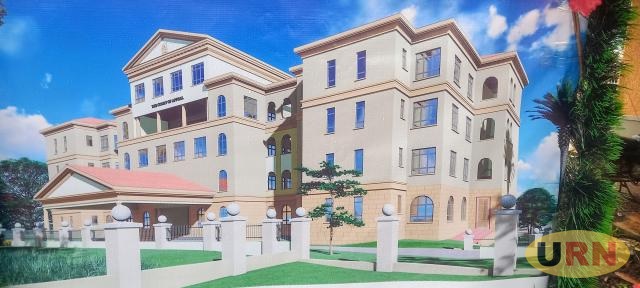
Gulu, Uganda | THE INDEPENDENT | The Chief Justice, Alfonse Owiny-Dollo, has asked Parliament to prioritize funding for the judiciary, warning that without adequate resources, courts will struggle to meet their mandate of timely delivery of justice to Ugandans. “The problem of this Country, including our national politicians, is, they look at the judiciary as a consumer institution; we are (judiciary) is just there to consume, and what value can they add to the national economy?” Dollo stated.
He adds, “Even with the merger resources, the judiciary has got the soft power and has contributed to the stability of this country. When you read the Bible, you will know that the first arm of government is the Judiciary (The Mosaic Law). Executive was the last arm of government in the Bible.” For the 2025/2026 financial year, Parliament appropriated 614 billion shillings to the judiciary, up from 442 billion shillings in the previous year. Dollo maintains that even with the increment, the judiciary is still not receiving what it needs to address growing concerns in legal service delivery. He cited logistical challenges, understaffing, and limited infrastructure as barriers to justice, saying these could be resolved with more investment.
The Chief Justice made the remarks during the groundbreaking for the construction of the regional Court of Appeal in Gulu City, one of eight such courts in the judiciary’s work plan. The twin towers will sit on about two acres of land donated by Gulu District Local Government. Construction, costing 30 billion shillings from the government, is being handled by Seyani Brothers Company Limited over 18 months, starting July 22, 2025.
The facility’s design includes court chambers, parking yard, child care centre, conference facilities, and six levels above ground with one underground level. Dollo commended Seyani Brothers for professionalism, recalling their earlier work on the Court of Appeal in Kampala. “When you have a company like this, which doesn’t give you a bill of quantity every day, and you can never have this with other companies. When I saw they won the bid, I was very happy, and the President has asked several times how the judiciary did it,” Dollo remarked.
He adds, “Public servants are now coming to learn from the Court of Appeal in Kampala how the judiciary did it. I will retire and know that what will stand here in Gulu will be standard.” The Gulu regional Court of Appeal will serve as one of two such facilities in Northern Uganda, with the second planned for Arua. Construction in Mbarara City began on July 25, 2025, with plans to extend to Fort Portal in a later phase.
Director of Public Prosecutions, Jane Frances Abodo, said the new facility is more than just infrastructure. “The appellant had been facing the logistical challenges and financial constraints affecting both the justice seekers and the justice professionals who have to travel to Kampala. This court (regional) shall not be a monument but a living hope for accountability in the justice systems,” she stated.
Justice Philip Odoki, the Resident Judge of Gulu High Court Circuit, welcomed the project, saying, “When the litigants aren’t satisfied with our ruling, they don’t even need a bicycle now, but shall walk in an appeal. It won’t only improve the administration of justice but shall improve the economy of this City because the judges will need accommodation and other services.”
Deputy Chief Justice, Dr. Flavian Zeija, said the regional court will reduce the cost of quarterly sittings in different regions. He commended Gulu District for being the first to donate land for the project.
Northern Uganda, still recovering from decades of conflict, faces numerous unresolved land disputes due to family conflicts and fraudulent transactions involving investors. The judiciary promotes alternative dispute resolution to address case backlogs, promote unity, and find practical solutions.
By December 2024, Gulu High Court Circuit had 2,078 criminal and civil matters, 70% of which were land-related. The court disposed of 594 cases in the 2023/2024 financial year, with 22 appeal cases recorded. Gulu Central Prison holds 5,538 inmates — 3,717 convicts and 1,821 on remand awaiting trial before the High Court. Nationwide, judicial records show significant case backlogs.
In 2021/2022, courts disposed of 205,967 cases out of 373,000 filed — an average of 185,249 cases registered and 167,123 disposed of annually. There were 168,007 pending cases, of which 50,592 were backlogs. The Supreme Court handled 778 cases but completed only 92, the High Court concluded 36,766 out of 100,957, and the Court of Appeal disposed of 793 cases out of 9,043.
Magistrates’ courts handled 183,647 cases, completing 66,858. Established under Article 134 of the 1995 Constitution, the Court of Appeal is the second-highest court in Uganda, handling constitutional matters and appeals from the High Court. The regional courts are expected to bring justice closer to disadvantaged communities who cannot afford to travel to Kampala.
****
URN
 The Independent Uganda: You get the Truth we Pay the Price
The Independent Uganda: You get the Truth we Pay the Price



